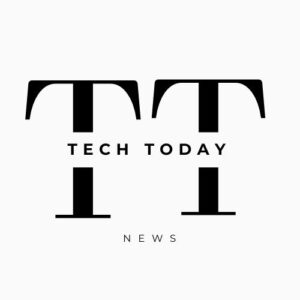Introduction
Artificial Intelligence (AI) is rapidly transforming industries, reshaping the job market, and raising ethical concerns about automation and employment. As AI-powered automation becomes more sophisticated, many fear job displacement, while others argue that AI creates new opportunities. In this article, we’ll explore the ethical implications of AI in the job market, backed by real-world examples and expert insights.
How AI is Changing Employment Landscape
1. Job Automation: Threat or Opportunity?
AI and robotics are replacing repetitive, low-skill jobs while augmenting human capabilities in other sectors. According to a McKinsey report, automation could replace 45% of current work activities.
Industries Most Affected by AI Automation:
- Manufacturing: Robotics and AI-driven machines have replaced human workers in assembly lines.
- Retail: Automated checkout systems and AI-powered inventory management are reducing the need for cashiers and stock clerks.
- Transportation: Self-driving technology threatens trucking and delivery jobs.
- Customer Service: AI chatbots and voice assistants are replacing human support agents.
2. AI Creating New Job Opportunities
While AI eliminates some jobs, it also creates new roles requiring technical and analytical skills. The advancement of AI has led to the need for:
- AI Engineers & Data Scientists
- Cybersecurity Analysts
- AI Ethics Consultants
- Robotics Specialists
- Machine Learning Experts
According to the World Economic Forum, AI will create 97 million new jobs globally by 2025, outweighing the jobs it replaces.
Ethical Challenges of AI in Employment
1. Bias in AI Hiring Systems
AI-driven hiring tools are supposed to enhance efficiency, but bias remains a major concern. Example: Amazon’s AI hiring tool reportedly discriminated against female candidates due to biased training data favoring male applicants. This highlights the ethical issue of AI reinforcing existing social biases.
2. Worker Displacement and Economic Inequality
As AI automates low-skill jobs, workers without digital skills face unemployment. The ethical concern lies in whether companies prioritize profit over employees’ well-being. Governments and businesses must invest in reskilling programs to ensure a smooth transition.
3. Ethical Dilemmas in AI-Driven Decision Making
Self-driving cars present a major ethical dilemma—if an accident is inevitable, should the AI prioritize the passenger’s safety or the pedestrian’s life? Example: The “Trolley Problem” in AI ethics debates how AI should make life-or-death decisions, raising concerns about accountability.
4. AI in Healthcare: Promise vs. Bias
AI is revolutionizing healthcare by improving diagnostics and treatment plans. However, AI-driven healthcare tools have been criticized for inaccuracies due to biased datasets. Example: IBM Watson faced scrutiny for providing incorrect cancer treatment recommendations, emphasizing the need for unbiased and accurate AI in medical applications.
How Companies and Governments Can Address AI Ethics
1. Implement Ethical AI Guidelines
Organizations should adopt transparent AI ethics policies to prevent bias and discrimination. Ethical AI frameworks must be developed to ensure fairness in AI decision-making.
2. Reskilling and Upskilling Workforce
Governments and companies should invest in reskilling programs to help workers transition into AI-driven industries. Online platforms like Coursera and Udacity offer AI-related courses that equip employees with essential digital skills.
3. Establish AI Accountability Laws
Regulations must define who is accountable when AI systems make unethical decisions. Companies deploying AI should be held responsible for their algorithms’ consequences.
Future of AI in the Job Market
AI will continue evolving, leading to a shift in how humans and machines collaborate. Rather than fearing AI, society must embrace its potential while ensuring ethical implementation. The future of work will be about humans and AI coexisting, with human oversight playing a crucial role in decision-making processes.
Conclusion
AI is undeniably reshaping the job market by automating tasks, creating new job opportunities, and presenting ethical dilemmas. While job displacement is a concern, responsible AI implementation, reskilling initiatives, and ethical guidelines can ensure a balanced transition. The key to a successful AI-driven future lies in ethical governance and continuous learning.
What are your thoughts on AI’s impact on employment? Share your insights in the comments below and let’s discuss how we can build an AI-driven future responsibly!
FAQs
1. Will AI completely replace human jobs?
No, AI will automate certain tasks but also create new job opportunities that require human creativity and critical thinking.
2. What industries will AI impact the most?
Manufacturing, retail, healthcare, transportation, and customer service are among the industries most affected by AI automation.
3. How can workers prepare for AI-driven job markets?
Upskilling in AI, data science, cybersecurity, and machine learning can help workers stay relevant in the evolving job market.
4. What ethical concerns does AI pose in employment?
Bias in hiring tools, worker displacement, decision-making accountability, and data privacy are major ethical concerns associated with AI in employment.
5. How can companies ensure ethical AI usage?
Companies must adopt AI ethics policies, conduct bias audits, invest in reskilling programs, and comply with AI regulations to ensure ethical AI implementation.



